Healthcare
How health platforms can improve healthcare in the Global South
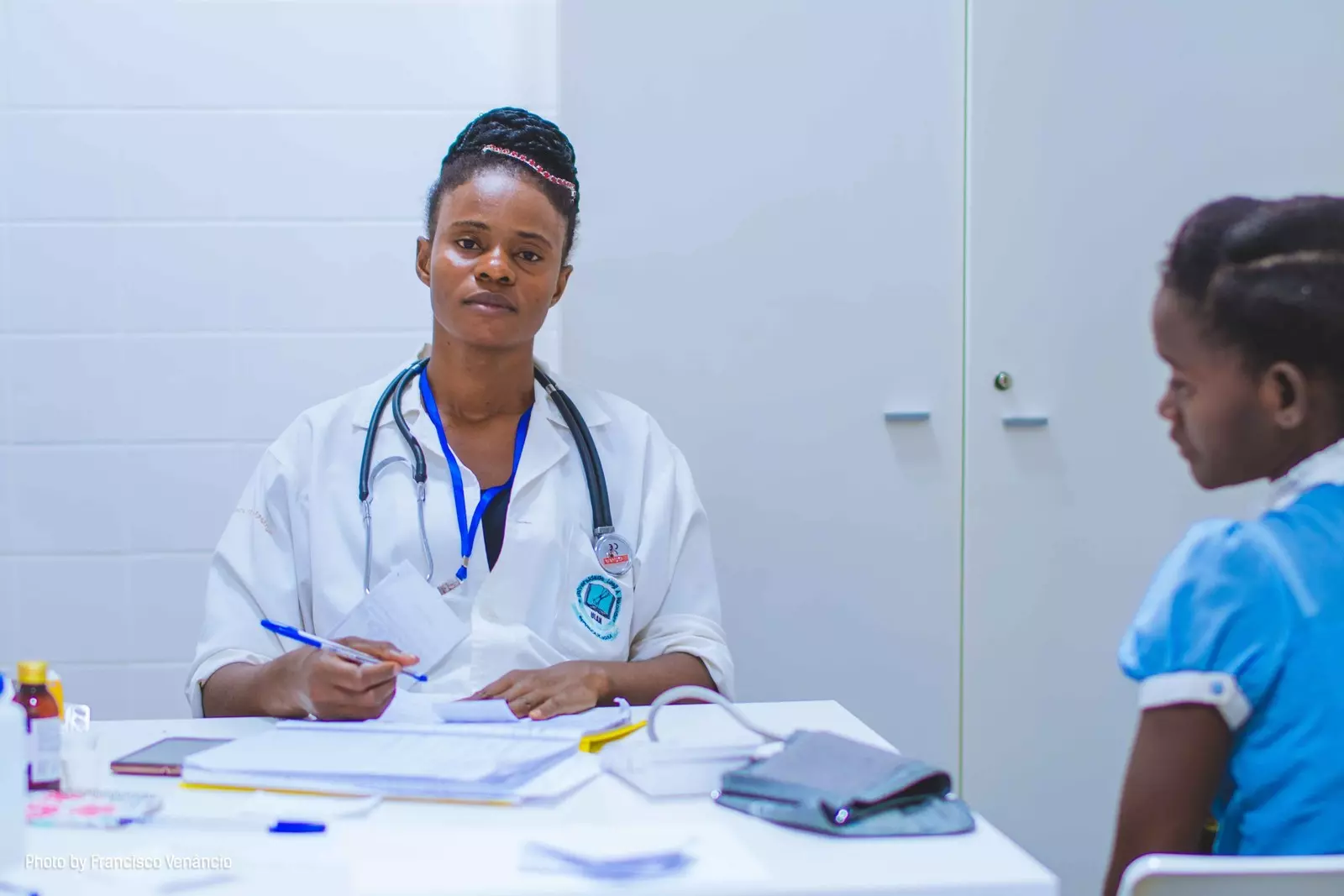
The article was first published by the World Economic Forum
More than half of Africa’s population – around 615 million people – do not have access to the healthcare services they need.
“Healthcare systems in Africa suffer from neglect and underfunding, leading to severe challenges across the six World Health Organization (WHO) pillars of healthcare delivery,” explain physician and public health specialist Obinna Oleribe and his co-authors in their paper, suggesting training and capacity building for health workers as the leading potential solution.
Platforms constitute an efficient and effective way of disseminating knowledge and offering opportunities for upskilling the workforce, including remote or vulnerable communities in the Global South. There is an urgent need to provide continuous education and skills to the most socio-economically underprivileged to equalize access to knowledge. But what kind of knowledge is being transferred through platforms and what could their unintended effects be?
To determine this, we studied MedicineAfrica, a non-profit platform that connects UK physicians with medical students and healthcare workers in under-resourced, post-conflict low- and middle-income countries (LMIC) such as Somaliland, the focus of our research. The platform aims to provide free medical education and create social value in local communities by upskilling healthcare professionals, equipping medical students with up-to-date clinical knowledge and, ultimately, improving healthcare outcomes.
MedicineAfrica, which won a Tech4Good for Africa Award in 2020, offers a range of courses to medical students at universities in Somaliland and qualified clinicians and healthcare workers. Although these are mainly in English, MedicineAfrica has also offered bilingual (English and Somali) courses, such as a recent continuing professional development course on COVID-19 prevention and treatment.
We aimed to capture the platform’s impact on developing medical skills and knowledge in Somaliland and improving clinical practice. Our findings confirm the platform’s potential to build capacity by transferring medical knowledge. However, this knowledge did not come without problems. Our research participants considered it, to a degree, limited in terms of its relevance to Somaliland’s context, as well as alienating because of its disconnection from local health workers’ practices.
Effective clinical knowledge transfer
MedicineAfrica managed to transfer clinical knowledge to participants, filling critical gaps in existing medical curricula. It also exposed students to Western best clinical practices, such as taking patients’ medical history, which they could adopt to improve local practices. Further, through online, real-time tutorials, medical students would receive instant advice on specific clinical cases they encountered in local hospitals, such as how to treat trauma in the head.
Somaliland-based participants could also compare their clinical case management with a Western peer through discussions with UK-based clinicians, leading to significant learning through comparison. For example, in one of the discussions, a participant recounted how a postpartum haemorrhage was treated and “saw some mistakes that we [made…]. Now we can do much better.”
The knowledge medical students got through the platform motivated them to further disseminate it to their peers who did not experience learning through the MedicineAfrica platform.
One participant represented this well when they said: “These doctors and nurses from the MedicineAfrica team are giving you lessons for free. So, this tells you that when you have the knowledge and skill, you also need to do some volunteering. You need to convey, transmit or transform or do your best to teach others, to help others.”
This, and other testimonies, show that MedicineAfrica provided useful knowledge to its students, truly transforming their practice and leading to improved learning.
A neglected local context
Our study also highlights that the platform was unintentionally assuming knowledge that was of less relevance and significance to participants. Specifically, participants described that some of the knowledge they would get through the platform was inapplicable because it relied on locally unavailable equipment and medicines.
As a participant told us, “We, in Africa, sometimes use what we have. We cannot access many drugs that you guys use, so sometimes you might hear that that drug is no longer used […] or these are the new guidelines…”
In their daily work, clinicians would make do with whatever equipment is available. Because the medical equipment’s availability is dismissed from the platform’s design, participants’ professional identity is devalued. That raises a question about the adaptability of global health platforms to local conditions of work.
Also, participants highlighted the significance of participating in a platform in which participants’ language is used. This issue is independent of individuals’ fluency in English. Our interviews show that the subtleties and rapport are lost when using another language.
As one participant shared: “When it is in Somali, you feel that you can ask more questions. If you ask a White person a question, the understanding isn’t there.” The linguistic rapport, therefore, conditions the depth of engagement, indicating the significance of local languages and idioms in creating a shared learning context.
Digital epistemic colonialism of health platforms
Finally, platforms based in the Global North often overlook the specific challenges and needs of the local context, which hampers their usefulness and value. For example, participants explained the need to develop a medical knowledge base about medical conditions in Somaliland and tailor clinical knowledge to target those conditions.
However, the medical knowledge they get relates to conditions identified in other countries where medical research is carried out. The platform does not currently offer the research skills needed to collect these types of health data. That is partly because platforms are developed in the West, reflecting curricula and best practices of Western societies while aiming to meet return-on-investment expectations. As the platforms are developed from the supply side, it is important to question whose priorities platforms need to espouse.
These issues, taken together, represent what we call “epistemic colonialism,” the process by which platforms aiming to transfer knowledge to countries of the Global South end up displacing and suppressing local knowledge and identities. Consequently, useful local knowledge is devalued and these platforms’ potential value is questioned.
The risk of epistemic colonialism may always be present but it does not mean it cannot be managed and alleviated. Our findings indicate that medical professionals on the MedicineAfrica platform were active, not passive recipients, of the knowledge transferred to them and could make choices about the knowledge that can (and cannot) be applied to their practice.
We argue that if health platforms intended to transfer knowledge, like MedicineAfrica, aim to equalize access to knowledge and offer continuous opportunities for reskilling and upskilling, then they must be attentive to their design and development.
Now Read: Navigating the Landscape of Social and Environmental Impact

Agriculture
How Rwandans are Empowering Their Communities through Innovative Solutions
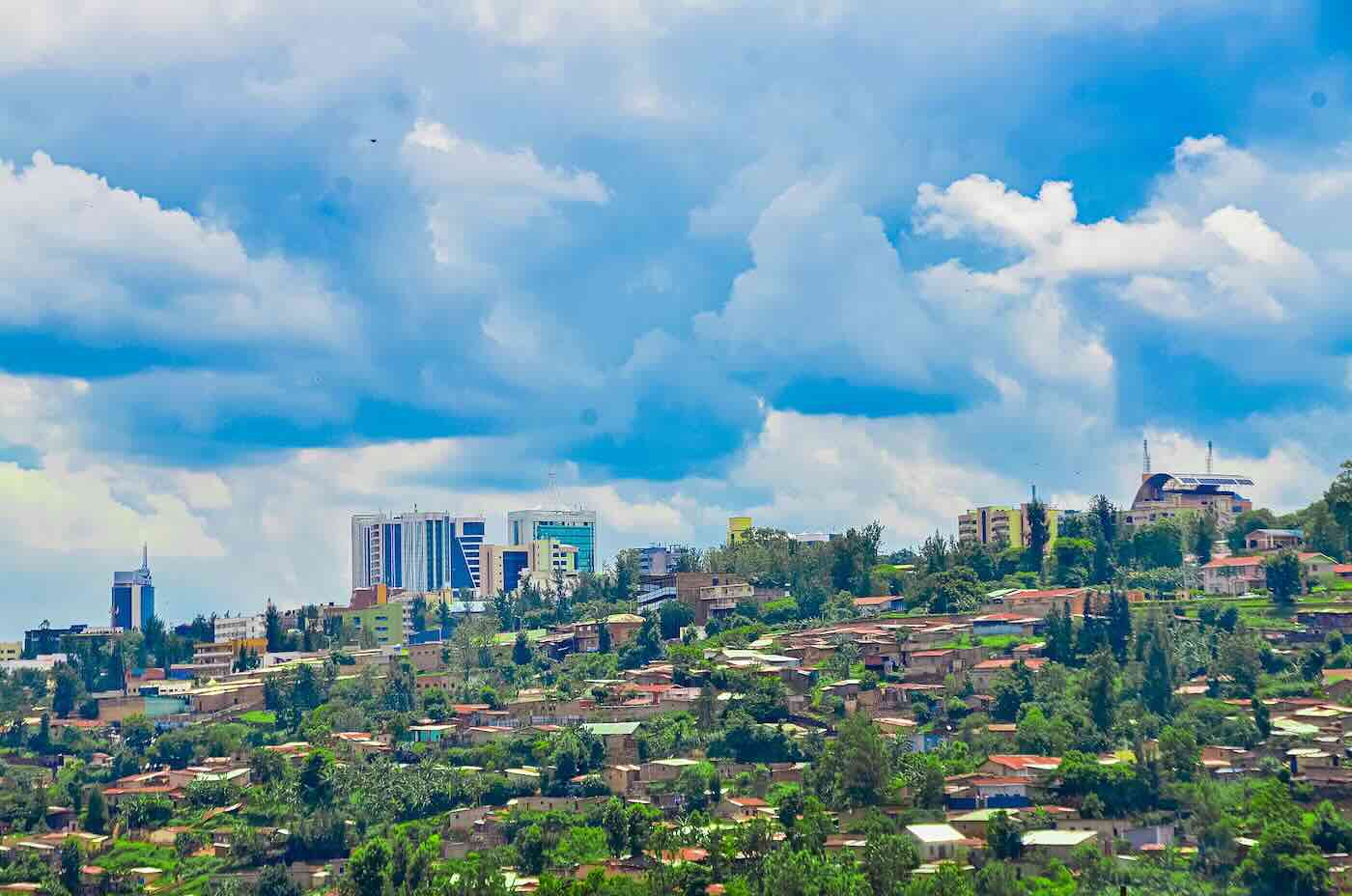
The Open Skies Fellowship in Rwanda effectively trained and chose 15 fellows through two cohorts. In March 2022, the initial cohort’s selection took place at our partner hub, IDA Technology, resulting in the selection of 10 fellows with promising projects. The workshop’s goal was to empower young local experts in cutting-edge technologies, providing them with the knowledge, resources, and skills necessary to transform their ideas from concept to prototype and eventually to market. Following the successful implementation of the first cohort’s projects, Open Skies organized another one-week workshop using the same process, leading to the selection of 5 fellows with outstanding projects for the second cohort. All these fellows were given mentorship and technology loans to support their project’s needs throughout the implementation.
IoT-BASED PROJECTS
In an era where technology continues to shape our daily lives, the Internet of Things (IoT) based devices have emerged as a powerful force in addressing and resolving societal challenges. These innovative devices created by our fellows interconnected through the vast network of the internet, have proven to be useful in finding effective solutions to some of our most pressing issues.
8 fellows worked on IoT-based projects where they came up with devices designed to solve challenges in their community.
Starting with Gasana Junior, He designed his E-Home project as a smart house to improve the quality of life for the aging population and individuals with disabilities. This encompassed features like automated lighting, ventilation, doors, and a crucial focus on security. The field that best captures his project is known as the “Internet of Things, or IoT, which describes devices with sensors, processing ability, software, and other technologies to connect and exchange data between devices and systems using the Internet.
Joselyne Nisingizwe designed the Murinzi Quick Box as an Internet of Things (IoT) device resembling a box filled with protective items such as pads and condoms, along with essential sexual, reproductive, and health information. It is deployed in small communities to provide accessibility to people with disabilities, allowing them to access these resources and report instances of violence conveniently.
Aimable Rubagumya developed a smart poultry farming solution, an innovative approach that harnesses advanced technologies to enhance poultry production. His creation is an Internet of Things (IoT) based system that enables farmers to monitor their coops by collecting data on temperature, humidity, carbon dioxide, ammonia, and dust. This system offers real-time notifications via Short Message Service (SMS) on both offline and online phones, as well as through email, to alert farmers when the hens’ conditions deteriorate, ultimately resulting in increased productivity.
Joyeuse Nishimwe’s idea was simple but involved complex skills using IoT devices. She designed smart beehive technology that allows a beekeeper to receive all the analyzed information related to their beads inside the hive at regular intervals and with the help of digital messaging systems (both via email and via phone).
For example, when the temperature decreases to the extent that bees cannot produce honey, a beekeeper will be notified and apply a normal heating method before bees start to leave. Data for each beehive is collected and presented in such a way that beekeepers can view the conditions of each hive, wherever they are, in real time.
Patrick Kubwimana created an IoT helmet for monitoring the health of people working in mines and underground tunnels. Smart helmets enhance miner safety by integrating sensors, including temperature, humidity, carbon monoxide, and heart rate, onto their helmets. These sensors, particularly the DHT11 which measures both temperature and humidity, provide early warnings for potential dangers such as explosions, flooding, and gas presence in mines.
Noella Abayisenga envisioned a device she calls Handtek, which is essentially a scanner built to check the sanitation status of one’s hands. The goal now is to help eradicate foodborne illness and maintain people’s hygiene through washing hands properly to avoid the spread of microbes. The device utilizes sensors, including a temperature sensor and light motion sensor, along with an ESP 8266 board that does a quick five-second scan and provides feedback. The system employs blue light along with an artificial intelligence system powered by TensorFlow and OpenCV, to analyze captured images.
Vicky Uwase created the Jambo Water Leakage Detection System (WLDS). This is a water leak and pipe burst detection system that will help people to monitor and notify water loss which leads to excessive expenses caused by leakage or frozen pipes. This system monitors the way water flows and if any leakage or pipe burst is detected it immediately sends a warning notification to a linked user’s smartphone or maintenance teams in charge. Jambo WLDS can also detect the temperature inside a pipe so it can notify the user or the technical team in case the temperature increases or drastically decreases within a pipe.
Kevine Giramata created a ‘’Safe baby app’’ whose system, based on IoT, employs sensors to monitor baby movements and activities, providing real-time information to parents. It assesses the baby’s well-being using humidity and temperature sensors. With machine learning, it can detect abnormal conditions and send timely notifications, either through SMS or a mobile app, addressing the challenge parents face with continuous child monitoring. The system is also trained to identify and alert parents to suspicious activities.
BUSINESS-RELATED PROJECT
Emmanuel embarked on a mission to build a cost-effective and widely accessible radio station that utilized his community’s available resources. By proposing innovative antenna construction methods, such as mounting on rooftops with materials like cement blocks, he aims to overcome geographical constraints and address frequency-related issues caused by increasing building structures. Beyond improved accessibility, the project seeks to inspire the younger generation, fostering critical thinking and intellectual growth. Building a radio station in his village was a commitment to community empowerment, youth inspiration, and contributing to societal well-being, marking a path for growth and development in Rwanda’s landscape.
VIRTUAL REALITY PROJECT
Babu Kamanzi as an advocate of virtual reality in education, Babu created a curriculum that can be integrated into VR sets with the purpose of enhancing the education system and classroom engagements of students in Rwanda. He gives the example of medical students, who instead of learning heart surgeries on real patients, can train on virtual patients with realistic simulations. Giving users the chance to practice and develop skills without real-world risks is one of the biggest advantages of VR solutions, and Babu hopes the adoption of VR and other emerging technologies in Rwandan high schools will help students learn in new and exciting ways.
CLIMATE CHANGE PROJECTS
Determined to make a difference, Zipora Shimwa decided to take matters into her own hands and embarked on a journey to revolutionize the way people cooked in her community. The result was a Smart Solar Thermal Cooking System (SSTCS) that would harness the power of the sun to provide a sustainable and efficient cooking solution. The SSTCS is an innovative cooking system with six key components: solar collectors, thermal energy storage, a smart control unit, an evacuated tube, a solar tracker, and a stove. Its high-efficiency solar collectors capture sunlight to ensure optimal performance, even on cloudy days. The thermal energy storage system enables uninterrupted cooking during low solar radiation periods, enhancing reliability.
Janviere Ingabire worked on a project called Home Cooking Gas Security, which aims to create an IoT device equipped to detect gas leaks, encompassing aspects such as gas type, sensor specifications, measurement range, alarm mechanisms, output control, response time, and operating temperatures (-10 to +55 Celsius). Crucially, the device not only identifies gas leakage but also takes preventive action by automatically blocking the gas supply before an accident can occur.
Denise Byukusenge Noticing the power challenges in certain regions of Rwanda, including her province, where access to large-scale hydroelectric power is limited and even simple tasks like getting a haircut require expensive transportation, Denise came up with solutions for those living far from electrical networks and facing economic hardships. She developed a project focused on generating energy from sustainable biogas, specifically derived from cow dung and toilet waste. With the goal of providing electricity access to individuals in her community.
A Geographic Information System (GIS) project
Evelyne Iradukunda her Campus Navigation System aims to empower students by providing a portable solution for seamless campus navigation. Utilizing ArcGIS, Evelyne converted the data into comprehensive maps, including class locations. This information was then transformed into shape files and integrated into code using Visual Studio Code with Leaflet. The Campus Navigation System aims to empower students by providing a portable solution for seamless campus navigation. Through a user-friendly digital interface with detailed maps, it addresses the challenges of being late to class and finding exam venues, showcasing the convergence of land surveying and technology to solve practical issues for students on campus.
Rwanda is referred to as the leading African country when it comes to technology, which is why it was easy for the project to be implemented in two cohorts in the country. Furthermore, Rwanda has been actively fostering a conducive environment for technology and innovation. There’s a growing ecosystem of tech startups, hubs, and initiatives, indicating a commitment to technological advancement. With this being said, the program has been successful as some fellows have been funded to further their projects and turned their business ideas into businesses, and others have acquired scholarships that will help develop their projects.
Also Read: How Congolese Youth Are Using Technology to Make a Difference
-
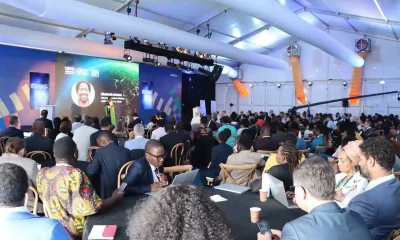
 Environment10 months ago
Environment10 months agoKEPSA Underscores the Role of Circular Economy in Meeting Equitable and Just Environmental Goals
-
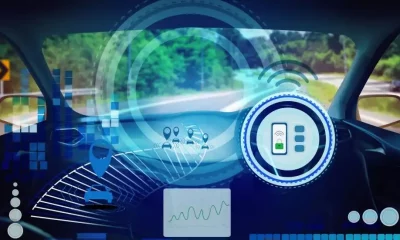
 Innovation10 months ago
Innovation10 months agoBritam uses technology to offer premium relief for Motor insurance Customers.
-
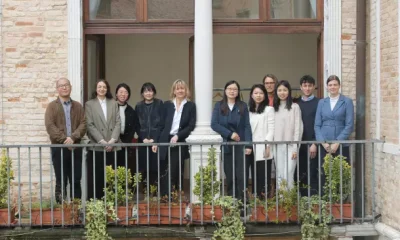
 Education9 months ago
Education9 months agoUNESCO and Huawei Technologies embark on a transformative journey to reinvigorate STEM education
-
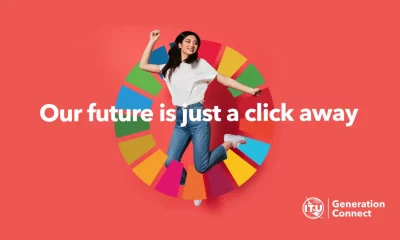
 Education10 months ago
Education10 months agoGeneration Connect Young Leadership Programme in Partnership with Huawei
-
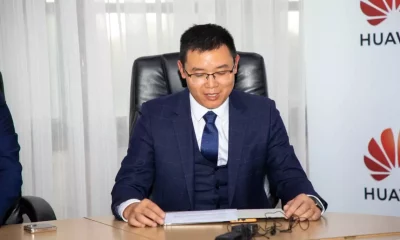
 Education10 months ago
Education10 months agoDigischool: Lessons in Connecting Kenya’s Schools
-
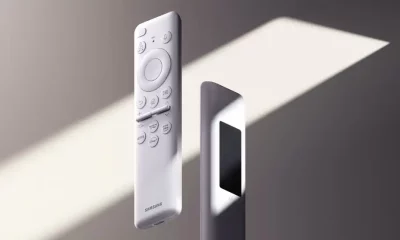
 Environment10 months ago
Environment10 months agoSamsung Electronics leads the way in e-waste management
-

 Education10 months ago
Education10 months agoDigiTruck: Bringing Digital Skills to Senegal’s Young People
-
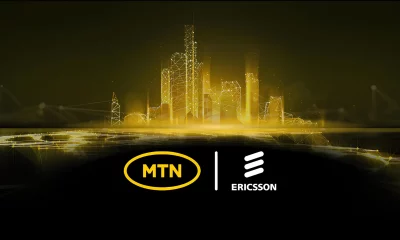
 Innovation10 months ago
Innovation10 months agoEricsson and MTN Group Partner to Elevate Business and Operations Support Systems for Innovation and Growth in Africa






